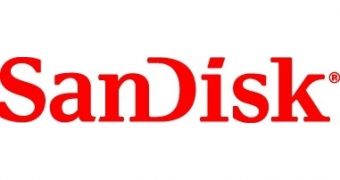With the increasing demand for higher-capacity storage solutions being delivered in increasingly smaller packages, SanDisk has just announced at the International Solid State Circuits technology conference in San Francisco, that it will begin the mass production of memory chips designed to allow consumers to store up to 64GB of data on a small-sized flash card. The new products will take advantage of the X4 technology developed by the Milpitas, California-based memory vendor.
The X4 technology that SanDisk acquired along with the acquisition of M-Systems in 2006 will enable the company to pack four bits of data into each memory cell. This technology enables flash memory chipmakers to considerably boost storage, compared to current solutions that allow for only one bit or two bits of data to be stored on one cell. SanDisk will partner with Toshiba, as part of a joint venture that will enable the development of the X4 technology using a 43nm manufacturing process.
According to the details on the new X4 technology, SanDisk will be capable of producing Secure Digital (flash cards), able to provide users with a maximum storage capacity of 64GB of data. That is double the current SD card offering on the market, with most cards reaching a maximum of 32GB, while mainstream offerings top out at 16GB.
Alongside the memory chip, SanDisk will also sell the X4 controller, as an integrated solution. The controller plays a critical role in the development of flash-based storage solutions, as higher densities require more sophisticated controllers that can provide the necessary performance.
In addition, SanDisk is expected to also detail a 32nm X3 technology that will ultimately enable memory makers to deliver storage capacities of up to 16GB, in microSD cards. This technology, which uses three bits per cell, will also be used in the development of Solid State Drives, according to SanDisk.

 14 DAY TRIAL //
14 DAY TRIAL //